196: Regenerating Vineyard Habitat: Maverick Farming | Marketing Tip Monday
Variety is the spice of life! It's crucial to keep this in mind when we look at monocrops like wine grape vineyards. The good news is, SIP Certified vineyards protect natural habitat and encourage biodiversity.
Welcome to Marketing Tip Monday with SIP Certified. We know customers are looking for wines labeled as sustainable. While our longer-form episodes help you learn about the latest science and research for the wine industry, these twice-monthly micro podcasts will help you share your dedication to sustainable winegrowing so you can show your customers that you share their values.
Monocrops put a damper on biodiversity. They can deplete soils and put native plant and animal species out of a home.
The vineyard must be thought of as its own ecosystem inside of a larger ecosystem. That's why sustainable winegrowers emphasize biodiversity in their vineyards.
They preserve open space and keep portions of the property un-cropped, use native plants that beneficial insects love in their cover crops and landscaping, and maintain short- and long-term conservation plans.
Protecting and regenerating habitat ensures that future generations have a healthy, thriving planet to call home. Maverick Farming, a vineyard management company in Santa Barbara who manages several SIP Certified properties, made changes to their tillage practices and noticed several benefits to their habitat.
Habitat at Maverick Farming
By working with the natural environment, Maverick Farming has improved their soil health, increased the number of beneficial insects, established native grasses, and saved money.
This helped to improve the habitat, and it freed up funds to spend on more sustainability projects.
Chad Foster, Operations Manager of Maverick Farming, says that what originally began as a way to be more effective with their budgeting, reducing tillage practices and allowing native grasses to flourish as cover crops have promoted root growth and better vine health in the vineyards they manage.
These reductions in tillage encourage beneficial soil microbes and insect populations to establish themselves in these vineyards. Chad notices an uptick in lacewing and ladybugs where the cover crops have been allowed to flourish.
The highly regenerative nature of native grasses makes them an excellent cover crop, as they reseed themselves when they get mowed down. This is a great example of how working with an environment’s natural ecosystem can support a cultivated agricultural system.
In some blocks, disking and leveling are necessary due to vertebrate pests making grounds uneven, but Maverick decided to stop tilling just to till – their land didn’t have much of a need, as there weren’t many erosion issues. They no longer disc after harvest, and are able to take the money that was once spent on these efforts and either save it or move it to more pressing projects.
Kudos to You!
Your commitment to sustainability is something to be proud of.
Your brand goes above and beyond to track its progress and make improvements over time, all in the name of protecting the people and the planet.
Did you know that monitoring your progress toward a goal increases the likelihood of goal success?
The effect is even larger when outcomes are made public, and when information is physically recorded (Harkin et al, 2016).
That's exactly what you do when you document your practices year after year through. If you aren’t tracking your practices and want to, you can use the award-winning SIP Certified program to officially certify your property or as a self-assessment at no cost.
“What our General Manager and Winemaker have always liked about SIP Certified is that it's audited, documented, and it focuses on continual improvement. It's been a hallmark of how they do it and forms the basis for how they train their team.”
– John Gayley, Hospitality Team Member, Center of Effort
Kudos to you for recognizing and celebrating your sustainable wins, finding areas where you can make improvements, and looking back in time and see how far you've come.
We are here to help you tell your customers how your brand protects natural and human resources with the Sustainable Story program.
This simple yet powerful free tool helps you tell your own personal sustainable message. And it just got better with a new online course. Go to the show notes, click the link titled Tell Your Sustainable Story to sign up, download the worksheet, watch the videos, and you are ready to tell your Sustainable Story!
Until next time, this is Sustainable Winegrowing with the Vineyard Team.
References:
- *** Tell Your Sustainable Story Online Course ***
- Habitat: Maverick Farming
- Marketing Tips eNewsletter
- Maverick Farming
- Niner Wines Estates protects the people and the planet
- Safe Pest Management: Wolff Vineyards
- SIP Smart Training online course
- Sustainable Story Worksheet | Print
- Sustainable Story Worksheet | Electronic
- What's your Sustainable Story?
- SIP Certified
- Vineyard Team

